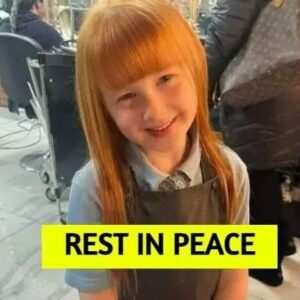For the first six weeks of first grade, my daughter Lily came home glowing. At six years old she was bright, confident, imaginative — the kind of child who told whole stories before she even finished stepping out of the car. She shared everything: which classmate spilled glitter everywhere, who got to feed the class hamster, how her teacher said she had “the neatest handwriting in the universe.”
Those afternoons filled the house with joy.
Then, suddenly, things changed.
At first it was small. She walked slower after school. She said she was tired. She stopped showing me her drawings. Kids have off days, so I didn’t assume anything serious. But soon she began waking up looking worried, staring at her socks like she didn’t want to put them on.
One morning, I found her fully dressed, sitting quietly at the edge of her bed, whispering, “I don’t want to go.”
Something inside me tightened. A child that young shouldn’t sound so defeated. But when I asked what was wrong, she shut down.
Every afternoon she climbed into the car quieter than the day before. Her backpack stayed zipped. Her cheerful chatter vanished. Her spark dimmed, little by little.
I asked gentle questions — about friends, about recess, about whether anyone said something hurtful. She said no every time. But her eyes kept avoiding mine, and my instincts told me something wasn’t right.
By the third week, I decided to stop guessing. I placed a small voice recorder in her backpack — something I’d kept from my old community interview days — and let the day unfold.
When she came home, I went straight to my room and pressed play.
At first, it was normal: classroom noise, chairs moving, soft chatter. I almost felt relieved. But then another voice spoke — firm, impatient, and definitely not her regular teacher.
“Lily, focus on your paper.”
My daughter’s quiet voice followed. “I was just helping—”
“Stop arguing,” the woman said sharply. “You always make excuses.”
My stomach dropped.
It wasn’t the words alone, but the tone — heavy, frustrated, unfair. I listened as my daughter tried not to cry. The adult’s comments grew more critical, comparing her to someone she didn’t even know about, speaking in a way that startled me. It was clear something personal had spilled into professional space.
I listened again, hoping I was misunderstanding. But the pattern was unmistakable: firm corrections turning into discouraging remarks, and my daughter shrinking under them.
The next morning, I went to the principal with the recording. She listened carefully, concern growing across her face. She explained that Lily’s regular teacher had been out sick for several weeks and a long-term substitute had stepped in. Then she showed me the roster.
My breath caught.
I recognized the name — someone I’d met years earlier in college. We had never been friends, and there had been tension back then that I had long forgotten. Apparently, she hadn’t.
The school called me back later that day. When I arrived, the substitute was already in the office. She acknowledged knowing me from the past, and it became clear that old misunderstandings had influenced how she treated my child. The principal intervened immediately and asked her to leave the room.
The school took action the same day and assured me a new plan was in place.
I didn’t share the adult details with Lily. She didn’t need to carry that weight. I simply told her her regular teacher would be back soon and that school was a safe place for her.
The next morning, she woke up early again and chose her favorite unicorn shirt. When I dropped her off, she whispered, “I feel better today.”
That afternoon, she ran to the car waving a colorful craft project, smiling the way she used to. That simple happiness nearly brought me to tears.
A week later, the school sent a letter to families explaining that staffing changes had been made and additional support resources were available. They apologized, reviewed their procedures, and ensured a more stable classroom environment moving forward.
It was the right response.
That night, after Lily fell asleep, I sat in the quiet living room thinking about how quickly a child’s joy can shift — and how important it is for adults to notice.
My husband rested a hand on my knee. “She’s okay now,” he said softly.
“I know,” I whispered. “I just never expected something from so long ago to affect her.”
“Some things stay with people,” he said. “But what matters is that you paid attention.”
He was right.
Children don’t always have the words to explain what they’re feeling. Sometimes the only signs are small changes adults can easily overlook — silence, tiredness, a shift in behavior.
But behind those signs can be something real, something that needs attention and protection.
What I learned is simple: listen closely. Even when a child can’t explain, their feelings are speaking.
And because I listened, I was able to help my daughter find her joy again.





